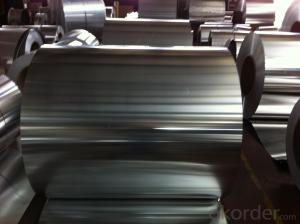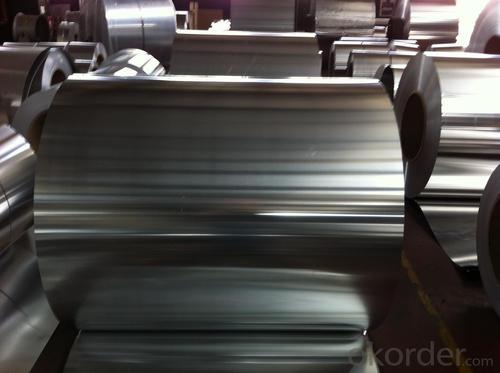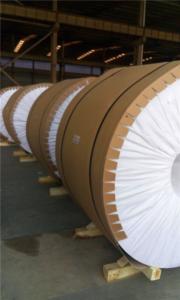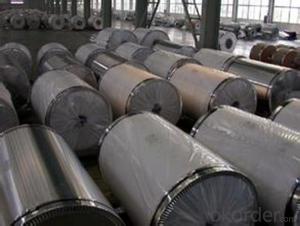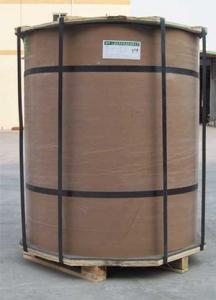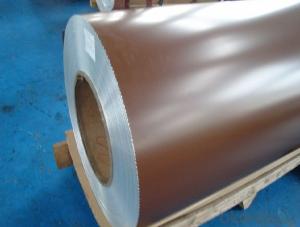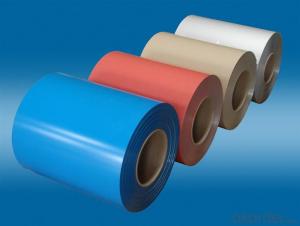Aluminum Coil Sales Pittsburgh - 3.5mm Aluminium Coil
- Loading Port:
- China Main Port
- Payment Terms:
- TT OR LC
- Min Order Qty:
- -
- Supply Capability:
- -
OKorder Service Pledge
Quality Product, Order Online Tracking, Timely Delivery
OKorder Financial Service
Credit Rating, Credit Services, Credit Purchasing
You Might Also Like
Specifications
1:mill finish aluminum coil coil weight:2000kg-2500kg
2:ISO9001,SGS,CCS test certificate
3:Width can reach 2500mm.
4:DC and CC material is available.
mill finish aluminum coil
| Product | Aluminum Coil |
| Alloy | 1050, 1060, 1070,1080,1085,1100, 1200,1145 3003, 3004,3005, 3102,3103,3104,3105, 3A21 5052,5052A,5657, 5754,5082,5083,6061,7075,8006,8011,8079 |
| Temper | O, H12, H14, H16,H18 H22,H24,H26,H28,H32,H34,H36,H38 |
| Thickness | 0.2mm-7.0mm(Or Customer's requirement) |
| Width | Under 2500mm |
| Lead Time | Within 20 days after receiving deposit |
| Packing | Standard Exporting wooden pallets |
| Surface: | Bright & Smooth Surface, Free from defects like white Rust, Oil Patch, Edge Damage. |
| Application | PP cap stock, hot rolled thick plate, PS base plate, aluminum curtain wall base plate, the traffic sign ,air-conditioner heat and exchangers, food container, household foil, pharmaceutical packing, cigarettes packing, |
- Q: Is it possible to use a magnet to determine if an aluminum coil has magnetic properties?
- <p>No, you cannot use a magnet to test the magnetic properties of an aluminum coil. Aluminum is a non-magnetic material, meaning it does not have magnetic properties and will not be attracted to a magnet. Magnets are used to test ferromagnetic materials like iron, nickel, and cobalt. To test for magnetic properties, you would need to use a different method, such as an electromagnetic induction test, which can detect magnetic fields generated by electrical currents in a coil.</p>
- Q: What are the effects of casting temperature on ductility of aluminum coil?
- The tensile strength and ductility increase with the solid solution insulation time, and reach best fit at 1 hour. Continue thermal insulation, and the tensile strength will change little while the ductility will reduce. This is because the solid solution over insulation will cause the work pieces crystallize so that the large crystal reduce the plasticity.
- Q: so i've been using natural deodorants that don't have aluminum, but they only work for a little while. i've heard that aluminum may cause Alzheimer's, and i have a history of Alzheimer's. do you know of any web sights that can confirm/deny this? or if you know of any deodorants that work really well that don't have aluminum! this is really getting annoying
- it depends. in some people it is and others it is not. when you wear deodorant, the aluminum goes into your blood stream. just think about that
- Q: This question asks if aluminum coils are susceptible to rusting.
- <p>Aluminum coils do not rust in the traditional sense. Aluminum reacts with oxygen in the air to form a thin, protective layer of aluminum oxide on its surface, which prevents further corrosion. This oxide layer is different from rust, which is iron oxide. While aluminum can tarnish or corrode under certain conditions, such as exposure to certain chemicals or harsh environments, it does not rust like iron or steel. Proper storage and handling can help maintain the integrity of aluminum coils and prevent any form of corrosion.</p>
- Q: What is the typical coefficient of friction for aluminum coils?
- The coefficient of friction for aluminum coils can differ based on numerous factors, including surface conditions, lubrication, and the specific aluminum alloy employed. Nevertheless, compared to other materials, aluminum coils generally exhibit a relatively low coefficient of friction. Typically, it ranges from 0.1 to 0.4.
- Q: What is the composition of aluminum coils?
- Aluminum coils are typically composed of a pure aluminum core, which is surrounded by a protective coating or cladding material on both sides. The cladding material can vary and may include alloys such as aluminum-manganese, aluminum-magnesium, or aluminum-zinc, depending on the specific application and desired properties.
- Q: Can aluminum coils be used in the production of architectural façades?
- Yes, aluminum coils can be used in the production of architectural façades. Aluminum is a popular choice for façades due to its lightweight nature, durability, and versatility. Aluminum coils can be easily formed and shaped to create various architectural designs, making them suitable for use in the construction of façades.
- Q: How are aluminum coils inspected for defects?
- Aluminum coils are inspected for defects through various methods to ensure their quality and performance. One common method is visual inspection, where trained inspectors carefully examine the surface of the coil for any visible defects such as scratches, dents, or other damage. This type of inspection is usually done by human inspectors using proper lighting and magnifying tools to detect even the smallest defects. In addition to visual inspection, advanced technologies such as automated optical inspection (AOI) systems are used to thoroughly inspect the coils. These systems use cameras and image processing software to detect and analyze any abnormalities on the surface of the coil. AOI systems can identify defects such as cracks, pits, or surface irregularities that may not be visible to the naked eye. Another method used to inspect aluminum coils is ultrasonic testing. This non-destructive testing technique involves sending ultrasonic waves through the coil and analyzing the echoes that bounce back. By measuring the time it takes for the ultrasonic waves to travel through the coil and the amplitude of the echoes, defects such as internal cracks, voids, or inclusions can be identified. Furthermore, eddy current testing is another commonly used method for defect inspection in aluminum coils. This technique involves passing an alternating current through a coil and measuring the changes in the electromagnetic field caused by any defects in the material. Changes in the field can indicate the presence of cracks, voids, or other anomalies. Overall, a combination of visual inspection, automated optical inspection systems, ultrasonic testing, and eddy current testing is typically employed to thoroughly inspect aluminum coils for defects. These inspection methods help ensure that the coils meet the required quality standards and are free from any defects that could impact their performance or durability.
- Q: Can aluminum coils withstand high temperatures?
- Yes, aluminum coils can withstand high temperatures. Aluminum has a high melting point of 660 degrees Celsius (1220 degrees Fahrenheit), making it suitable for applications where high temperatures are involved.
- Q: What are cold rolled aluminum coils and hot rolled aluminium coils, what are their respective features?
- Each has its advantages and disadvantages.Cold rolling mainly deals with non thermal strengthening of sheet metal. Generally, the surface requirement is relatively high, and the ultra-thin materials such as single zero foil, double zero foil and so on can only be rolled by cold rolling.
Send your message to us
Aluminum Coil Sales Pittsburgh - 3.5mm Aluminium Coil
- Loading Port:
- China Main Port
- Payment Terms:
- TT OR LC
- Min Order Qty:
- -
- Supply Capability:
- -
OKorder Service Pledge
Quality Product, Order Online Tracking, Timely Delivery
OKorder Financial Service
Credit Rating, Credit Services, Credit Purchasing
Similar products
Hot products
Hot Searches
Related keywords
